Navigating Perinatal Anxiety: Your Compassionate Guide to Motherhood
The road toward motherhood is one that is filled with wonder, excitement, and apprehension. However, for some, this experience may be eclipsed by perinatal anxiety, a common but not always identified and treated form of anxiety during pregnancy and postpartum. One of the challenges faced by women and providers is how to differentiate between typical stress accompanying a major life transition and something that needs more attention and support. It's critical to approach this subject with awareness and compassion to support mothers who might be in need. In this blog post, we'll look at the symptoms of perinatal anxiety and explore strategies to cope with for those who are struggling.
Identifying Symptoms of Perinatal Anxiety
Perinatal anxiety, also known as prenatal anxiety or postpartum anxiety, is a disorder marked by extreme worry, dread, and anxiety throughout pregnancy and up to one year after giving birth. Approximately 6% of pregnant women and 10% of postpartum women develop this type of anxiety. Although some degree of worry is common when starting a family, perinatal anxiety goes above and beyond typical worries. It might show up in different ways and at different levels, so it's critical to spot the symptoms for early assistance and intervention.
Common Symptoms of Perinatal Anxiety include:
Excessive Worry: Feeling on edge all the time, even when there is no immediate reason to be worried. Concern for the baby's well-being, safety, or health might consume you completely. You might ruminate over worst-case scenarios and have racing thoughts about the future.
Panic Attacks: Sudden, acute bursts of anxiety accompanied by physical symptoms including shaking, hyperventilating, increased heart rate, and dizziness.
Restlessness: Being unable to settle down or relax as a result of continuous discomfort.
Physical Symptoms: Increased heart rate, tightness in the chest and throat, shallow breathing, lack of appetite, digestive issues, muscle tension, and trouble sleeping are all physical symptoms of anxiety.
Avoidance: Making significant efforts to avoid situations or places that make you anxious, which could interfere with your ability to communicate with others or complete essential tasks.
Intrusive Thoughts: Disturbing and unwelcome thoughts of hurting yourself or the baby, even when there is no intention of doing so. These ideas could make you feel guilty and ashamed.
Coping Strategies for Perinatal Anxiety
It's important to keep in mind that you are not alone when dealing with perinatal anxiety. There are tools that can help you in managing your symptoms, giving you greater confidence and peace of mind as you enter motherhood.
Talk About Your Feelings: Talking about your feelings with a close friend, member of your family, or a support group may be comforting. Often, just sharing your worries can help reduce their impact on you.
Practice Mindfulness and Relaxation Techniques: Deep breathing, progressive muscle relaxation, and mindfulness practices may all help to calm your nervous system and lower anxiety.
Maintain a Balanced Lifestyle: Make self-care a priority by getting enough rest, eating healthy, exercising regularly, and doing things that bring you joy.
Limit Information Overload: While keeping up with the news and parenting tips are important, too much of either can fuel your anxiety. Set limits on your media consumption and allow yourself breaks from content.
Establish a Support System: Surround yourself with people who are compassionate and supportive.
Consider Medication: In some situations, a doctor may advise taking medication to help manage particularly severe symptoms. Prior to beginning any medication, a doctor's consultation is recommended.
Set Realistic Expectations: Keep in mind that no parent is perfect. Give yourself the flexibility to make mistakes and pick up new skills along the way.
Focus on the Present Moment: Thinking too much about the future can increase anxiety. Use grounding exercises to refocus your attention on the here and now.
Seek Help: Getting help from a professional is the first step toward recovery. Mental health specialists with perinatal care experience can offer specific approaches and therapy strategies catered to your needs.
Individuals may navigate the future with a greater feeling of power and resilience by identifying the symptoms of perinatal anxiety and embracing effective coping techniques. It's not about getting rid of the worry completely; rather, it's about learning how to handle it and, in doing so, having the strength to embrace whatever comes along with motherhood.
For those who are now going through this journey, please know that your feelings are valid and that asking for help is a form of love, both for yourself and your growing family. Remember that every step forward, no matter how tiny, is an accomplishment worth celebrating.

